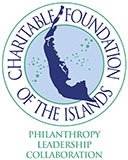Happiness and Year End Giving Strategies
/It’s an age-old adage, ‘money doesn’t buy happiness, but it sure helps.’ That sentiment certainly has special meaning this year.
Many studies confirm that donating time and service to others leads to greater happiness. Individuals who spent their money on other people, or gave gifts to others, are often happier than those who spent money on themselves.
So maybe money does buy happiness?
If you are looking for ways to give before you grab your credit card or checkbook, consider other easy, strategic, and possibly tax-wise options. You may be happy you did.
Give Your RMD
While some rules and guidelines apply, did you know that charitable donations from an IRA can be a great way to give back while also lowering your adjusted gross income? Instead of taking your Required Minimum Distribution (RMD) or part of it, you can consider making a Qualified Charitable Distribution (QCD) from a variety of different types of IRAs, including traditional and rollover.
If you want to make a QCD, these and other important rules apply:
You must be at least 70½ years old at the time you request a QCD.
The maximum total QCD amount you can contribute each year is equal to your total Required Minimum Distribution (RMD) or up to $100,000.
You must make the QCD by your RMD deadline for it to count toward the current tax year.
A QCD must be made directly from your IRA custodian. It won’t count if the funds are first released directly to you, even if you later donate them to charity.
Before making a QCD, talk to your IRA custodian to ensure that you understand these and any other applicable rules.
One drawback of the QCD is that you cannot give your QCD to a Donor Advised Fund (DAF), but there are other fund and program options available at Charitable Foundation of the Islands.
We’ve seen many donors give or give more than they ever had in the past to their favorite charities with this new-found source from retirement accounts.
Bunching
Bunching has become a popular tactic since the 2017 Tax Act. Many taxpayers are choosing the standard deduction over itemizing in their tax returns. Instead, you can “bunch” your deductions and choose to fund a DAF with one larger gift that will be deductible in that tax year. This gives you the flexibility to donate your regular charitable spending over several years. You get the tax benefit and the flexibility to write checks as you would like.
Create a Donor Advised Fund with a Grant from Your Family Foundation
Did you know you can create a Donor Advised Fund from a distribution from your family foundation? Donors with family foundations may decide to give their required annual 5% minimum grant (or even more) to a Donor Advised Fund. And this late in the year, it could be a valuable solution to last minute year-end granting. A DAF can be an effective complement to a private foundation, but the two vehicles are not interchangeable. They offer very different levels of control, authority, and philanthropic flexibility.
Donate from Your Portfolio, IRA or Other Property
Other important tax-wise strategies include:
gifting of highly appreciated securities (just think of the capital gains on those Apple stocks)
creating a charitable gift annuity (they are more popular than ever!) In this high interest rate environment, it is an advantageous time to set up a guaranteed income stream for yourself with the added benefit of leaving a gift to your favorite cause.
donating real estate, art, vehicles and more (consult your CPA)
Every donor situation is different, no two are ever alike so it’s important you look at the whole financial picture.
For future gift planning, consider assigning a charity as beneficiary of an IRA or life insurance policy. There are so many more options than the traditional cash gift, and often they are more lucrative for the nonprofit and can further your tax and philanthropic planning.
Of course, it’s always important to talk to your tax advisor and your financial advisor to be sure your plan aligns with your financial and philanthropic strategy. The Sanibel Captiva Trust Company team is always here to help. www.sancaptrustco.com.
Carolyn Rogers, a wealth advocate at the Sanibel Captiva Trust Company works with families, individuals, and business owners to help them achieve their personal and financial goals as well as achieve peace of mind. She is also a certified fundraising executive with more than 20 years’ experience in fund development and planned giving in the nonprofit sector.
LEGAL, INVESTMENT AND TAX NOTICE: This information is not intended to be and should not be treated as legal advice, investment advice or tax advice. Readers, including professionals, should under no circumstances rely upon this information as a substitute for their own research or for obtaining specific legal or tax advice from their own counsel. Not FDIC Insured | No Guarantee | May Lose Value
The Sanibel Captiva Trust Company is an independent trust company with $3.9 billion in assets under management that provides Family Office and Wealth Management Services, including investment management, trust administration and financial counsel to high-net-worth individuals, families, businesses, foundations, and endowments. Founded in 2001 as a state-chartered independent trust company, the firm is focused on wealth management services that are absolute-return oriented and performance driven. Each portfolio is separately managed and customized specifically to the client’s yield and cash-flow requirements. The Naples Trust Company and The Tampa Bay Trust Company are divisions of The Sanibel Captiva Trust Company. Offices in Sanibel-Captiva, Fort Myers, Naples, Marco Island, Tampa, Belleair Bluffs and Tarpon Springs. www.sancaptrustco.com.


